|
|
| Participants |
| From A to C |
|
Geoffray ADDE |
CERN |
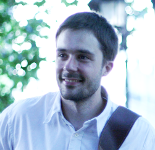 |
|
I am from France. I received my
PhD. in computer science from Ecole Nationale des Ponts et Chaussées in
2005. My PhD work was focused on "Imaging Processing Methods Applied to
Magneto-Electro-Encephalography Inverse Problem". I have been a research
engineer for 6 years at Electricité de France (EDF) in Energy
Management, working on time series forecasting. I am now a staff member
in the IT department at CERN in the Data Storage Services group. I am
working on the evaluation of cloud storage solutions like S3 and
OpenStack/Swift. I am also part of the EOS development team. The main
goal of this project is to provide fast and reliable disk only storage
technology for CERN LHC use cases. I'm currently using mainly C++ but I
used to work also with MATLAB, R and Python. |
|
| |
|
Sul-Ah AHN |
Korea Institute of Science and Technology
Information (KISTI) – Republic of Korea |
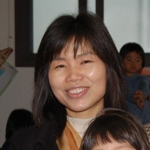 |
|
I have worked for the Global Science experimental Data hub Center (GSDC)
at Korea Institute of Science and Technology Information (KISTI) since
last year. My institute is starting to operate a Tier-1 candidate center
for ALICE experiment this year. My mission at GSDC is to analyze ESD
data and AOD data from ALICE experiment.
As for the operating systems, I am experienced with
Unix/Linux/x-windows, and Microsoft Windows systems.
As for the programming languages, I have been using Basic,
PASCAL, Fortran, C and Matlab. I have some experiences with C++, Java,
PHP, and SQL but not so much. I as well got my Ph.D. in Condensed Matter
Physics at Pohang University of Science and Technology (POSTECH)
specializing in theoretical and numerical study of high Tc
superconductivity. |
|
| |
|
Raphael AHRENS |
IBergische Universität Wuppertal - Germany |
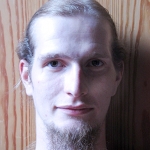 |
|
I
am a computer science student at the Cologne University of Applied
Sciences and currently working on my diploma thesis at the University of
Wuppertal. The subject of the thesis is the development of a feedback
channel for the Job Execution Monitor (JEM). JEM is a monitoring system
that runs concurrently with a submitted grid job. The feedback channel
tries to provide JEM with the ability to increase the monitoring level
after a job has started and gives the user the possibility to gather job
information while the job is running. After my thesis I plan to start a
master of computer simulation at the University of Wuppertal. My
interests lie in programming languages, distributed and parallel
computing and operating systems. On my private computers I like to play
around with FreeBSD, Gentoo and Ubuntu. |
|
| |
|
Roberto ALVAREZ ALONSO |
CERN, Geneva -
Switzerland |
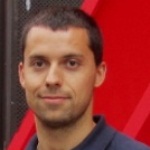 |
|
I am a software engineer, currently working in the CERN Service
Management Team as a Project Associated for the GS-SMS group. My work
consist in administrate, maintain and customize the Service-Now system
at CERN to adapt it to the needs of the users, within which, my main
task is the integration of the tool with third-party systems, like GGUS
or INFOREAM. I am also involved in the maintenance of several SharePoint
sites and in the development of .NET desktop applications used
internally in our group. Before that, I worked 3 years in the University
of Oviedo as researcher involved in several projects where I acquired a
wide experience in management, programing and designing. Given all of
the above, my technical knowledge covers: C#.NET, Javascript, ASP.NET,
PHP, C/C++ and Java. Furthermore, I have experience with DBMS as Oracle
and MySQL. Usually, I work on Windows or Mac, but I also have some
knowledge of Unix systems. |
|
| |
|
Elias ALVAREZ GRANDA |
CERN, Geneva -
Switzerland |
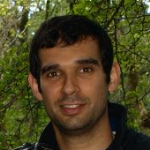 |
|
I am a computer engineer working for Service Management section in IT-DI
which is responsible for providing the means to enable the adoption and
usage of ITIL best practices for the management of all services that the
IT. The main task I am involved in is the development of new processes
and features and the maintenance of the tool used to manage ITIL
processes called Service-Now use in IT and GS departments. Previously I
was working on IT-OIS-IN in Email and Fax Service, I was involved in the
migration of the Email infrastructure from Exchange 2003/2007 to
Exchange 2010. I was also involved in the redesign of the web services
used by MMM and account management to interact with the E-mail Service
and some other projects on SharePoint. I am looking forward to visiting
Uppsala and taking part in all CSC activities. |
|
| |
|
Carmen ALVAREZ PEREZ |
CERN, Geneva -
Switzerland |
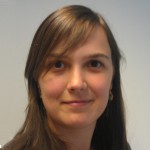 |
|
I first
came at CERN as a summer student in 2010 to work in the CERN Document
Server team. After this, I graduated in 2011 with a MSc degree in
Computer Engineering from University of Oviedo, Spain, and then came
back to CERN to work in the same section for one more year. I am
currently a fellow working in the HR department, where I improve the
recruitment process by making studies about the current practices, and
the webpage (specially the application forms) so we can get better data
from the candidates and automate part of the procedures. I also provide
support and maintenance of HR’s internal Oracle Application Express
applications that already exist and create statistic reports. I
currently work with PL/SQL and Windows mainly, but I've worked with
Linux, Python and web languages (html, javascript, css), and I used
mainly Java at university.
|
|
| |
|
Marilena BANDIERAMONTE |
University of Catania
- Italy |
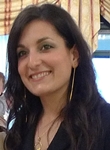 |
|
I am a computer science engineer and I took my
laurea
degree in January 2007. After
working in the Distributed Systems research group at DIEEI of Catania
University, I have started this year a PhD in Catania, working at Dept.
of Physics and Astronomy and at INAF. My research activity has been
mainly focused on metaheuristics and scheduling algorithm in Grid
Computing. I am currently involved in a project, founded by the Italian
Ministry of Research that aims to develop a detection system for
containers control, making use of the muon tomography. It uses the
secondary particles of cosmic rays, affecting every place on Earth with
a constant flux, revealing the deflection of these particles when
crossing high atomic number materials. I will deal specifically with
issues of reconstruction and visualization of the tracks and with the
visualization of 3D tomographic images |
|
| |
|
Giovanni BIANCHI |
CERN, Geneva -
Switzerland |
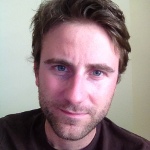 |
|
I
first came at CERN in 2010, on a scholarship by University of
California, soon after I graduated in Computer Engineering at the
University of Pisa. I stayed 10 months and worked for PH-CMS on
high-performance software simulations for the FF-LYNX project. Then I
came back in November 2011 as a fellow and again for PH-CMS.
I working on tkGeometry, software to perform quick simulations of
a whole range of different architectural layouts of the CMS silicon
tracker and compare their performances in terms of geometric efficiency,
power consumption, radiation length, cost and many other figures of
merit. tkGeometry is an ideal prototyping tool because it runs much
faster than full-fledged CMSSW simulations. It is written entirely in
C++, relying on STL, ROOT and Boost libraries.
Aside from C++, I master Java, Python and PHP and attended a CERN
course on OOP patterns. |
|
| |
|
Mirela BOTEZATU |
CERN, Geneva -
Switzerland |
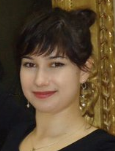 |
|
Mirela Botezatu is currently working with Andrzej Nowak on Performance
Tuning in CERN Openlab, in collaboration with Intel. She graduated in
Computer Science from Polytechnic University of Bucharest, specializing
in compilers and operating systems. She has also completed her Master I
in Data Mining at Université Paris 6. During her studies, she worked as
an intern for several companies including BitDefender, Avira and Jinny
Software focusing on computing tasks, and researched clustering data
from social networks at Laboratoire d'Informatique Pairs 6. |
|
| |
|
Gautam BOTREL |
CERN, Geneva -
Switzerland |
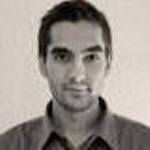 |
|
My current work is to setup a Issue tracking service for the CERN
community, that's to say to include Atlassian tools within IT services.
It involves some development (java, javascript, jsp), some configuration
to fit the CERN virtual infrastructure (quattor, puppet). In the CSC
2012 program, the "Virtualization and clouds", "Data technologies",
"Creating secure software", "Networking QoS and performance" are of
great interest and directly related to my current work. The other topics
all seem interesting and I'm very eager to take them. I'm familiar with
Windows and Unix based system. I do have a developer profile (C/C++,
Java, Qt, Lua, Python, Git, ...) and some knowledge in Databases and
web-programming. |
|
| |
|
Mariana BUSTAMANTE |
Uppsala University - Sweden |
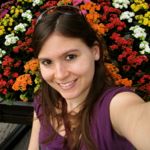 |
|
I have been living in Uppsala for the past year and a half in order to
complete the MSc in Computer Science programme at Uppsala University.
During the course of the master programme, my interests have included
subjects such as Machine Learning, Distributed Systems, Large Scale
Programming, Computer Assisted Image Analysis, and Scientific
Visualization. This semester I started working on my final thesis
project, which is collaboration between the Centre for Image Analysis at
the university and the Uppsala University Hospital. The goal of the
project is to
analyse
and experiment with techniques to identify very small differences
between MRI volumes of trauma patients. So far I've worked extensively
with 3DSlicer (a software package for visualization), ITK and Matlab, so
I've been coding mostly using C++ and Python. * Operative Systems:
Ubuntu, Debian, Red Hat, Gentoo, Solaris, Mac OS X, Microsoft Windows. *
Languages: Python, Erlang, C, C++, Matlab, Java, Haskell, Bash, SQL. |
|
| |
|
Samuele CARLI |
CERN, Geneva -
Switzerland |
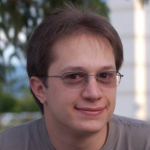 |
|
I
currently work on the author disambiguation facility for INSPIRE, the
CERN's digital library.My work is focused on approximating the
solution of a hard, constantly evolving problem using high level
techniques, parallel and distributed computing as well as crowd-sourcing
based algorithm supervision; this involves research on cutting edge
multi-staged data clustering algorithms, exploration of possibilities
for optimization and parallelization of such algorithms and research in
techniques to allow fast re- computation upon small input data changes.
I am familiar with high level languages as Python (main language used in
INSPIRE), matlab-like and java as well as C, C++. I am usually working
with UNIX like operating systems.
I am as well a M.Sc. student in computer science at Università degli
Studi di Firenze specializing in numerical analysis and parallel
computing; I have broad and strong interests across many fields,
especially physics, mathematics and electronics. |
|
| |
|
Jose CASTRO LEON |
CERN, Geneva -
Switzerland |
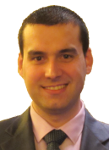 |
|
Currently I am working in IT-OIS
group at CERN as Service Manager at CERN virtualization infrastructure.
I am involved in capacity management, resource planning, stabilize and
scale out of the system to the current capacity (+3000VMs in 350
hypervisors). Since last year, I am also of the Agile Infrastructure
team focusing on management of large-scale computing resources using
standard open source tools like KVM, Puppet and Openstack aiming to
build a scalable and reliable private cloud solution at CERN. I am
designing and implementing the integration of Agile into the CERN
environment in terms of authentication, authorization and user
interaction on the private cloud. I also present AI Infrastructure as a
Service project in HEPIX 2012 conference in Prague.
|
|
| |
|
Luca CERVIGNI |
CERN, Geneva - Switzerland |
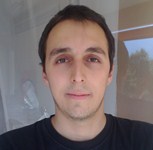 |
|
I
am currently studying in Milan "Security of Systems and IT Networks" and
working at CERN as a system administrator. I've been always extremely
interested about IT and high energy physics and for these reasons I
joined CERN. I wrote a new monitoring system for the Water Cooled Racks
in the CERN computer centre and right now I'm developing tool that are
helping my team to enhanced the productivity and save time while the
system administration tasks. I am experienced in PHP and in writing
website respecting web standards, also I code in C++ and bash for my
system administrator duties. |
|
| |
|
Mattia CINQUILLI |
CERN, Geneva - Switzerland |
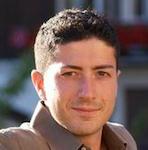 |
|
I am currently working as a fellow in the CERN IT department for the
Experiment Support group. I am developing and contributing in the design
of the next generation of workload management applications for the CMS
experiment, and in particular I am in charge to work on the end user
analysis workflow. The underlying infrastructure of these new tools is
written in Python programming language and introduces a multilayered
server environment which uses new technologies such as NoSQL databases
(namely CouchDB) and RESTFull based web services, technologies on which
I am strictly involved. During my fellowship I have also contributed to
the Experiment Dashboard to improve its job monitoring reliability.
Currently I am also in charge to develop and maintain part of the Data
Popularity job data acquisition into Oracle database through PL/SQL
routines. |
|
| |
|
Gabriele COMPOSTELLA |
Max Planck Institute
for Physics, Münich - Germany |
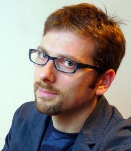 |
|
I studied physics in Italy and received my PhD in 2004 with a
measurement of the top quark pair production cross section at CDF.
During graduate school I also contributed to the transition of the
computing model of the experiment towards the Grid. One year ago I
joined the ATLAS collaboration and moved to MPP Munich, where I work on
a precision measurement of the top quark mass with a multidimensional
template method. I am also involved in ATLAS distributed computing, and
contributed to PanDa pilot automatic retries. I usually program in C++
in the ROOT framework for my data analysis activities, but I have more
fun with python and bash scripting and use them whenever I can. Even
though I've recently joined the Dark Side by making the switch to Mac
OSX, I consider myself a free software enthusiast and enjoy using
GNU/Linux on a daily basis. |
|
| |
|
Samir CURY SIQUEIRA |
CERN, Geneva -
Switzerland |
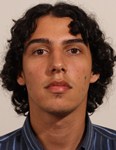 |
|
After working for 2,5 years in a Tier-2 center for CMS, I've been
invited to work on CMS's central Grid operations, having worked with
Monte-Carlo production at the Grid, counting on 1800 cores, and now as a
Tier-0 operator, counting with 3500 cores to deliver the first RAW and
RECO datasets coming from data-taking. My main focus in development is
in monitoring tools or integrating existing monitoring for the systems I
operate. |
|
|
|
